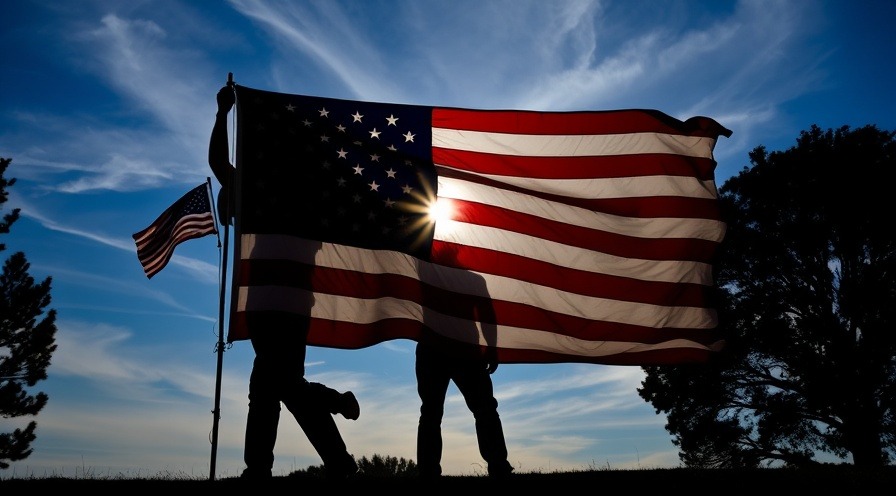
VA Workforce Cuts Raise Concerns for Veterans' Health
The Department of Veterans Affairs (VA) is facing immense scrutiny over its proposal to cut a staggering 80,000 jobs, an action that has alarmed veterans and advocates alike. At a time when the VA is experiencing unprecedented demand for healthcare services due to the PACT Act expansion, these proposed workforce reductions could severely impact the availability and quality of care that veterans rely on.
The 2025 plan announced by the Trump administration indicates a reduction of approximately 17% of the VA workforce, which already suffers from significant staffing shortages. With nearly 25% of VA employees being veterans themselves, the implications of these cuts extend not just to existing healthcare services but to the broader support system that veterans depend on for mental, emotional, and physical well-being.
Understanding the Urgency: Why Veterans Deserve Better
Advocates for veterans, such as the Disabled American Veterans (DAV), have voiced deep frustrations regarding the lack of transparency surrounding the cuts. Randy Reese, the DAV Washington Headquarters Executive Director, has noted that the agency has failed to consult or inform veterans about how the impending layoffs will affect them. This is a particularly pressing concern given that the VA was just beginning to recover from past staffing issues with improvements in service delivery.
While cuts may be framed as an effort to rectify inefficiencies, they threaten to undermine the essential benefits provided through the VA. Many veterans rely on the VA not just for healthcare, but for a network of support services—including financial planning, nutritional guidance, and mental health resources tailored specifically for post-9/11 veterans. The disruption caused by these cuts could roll back years of progress made in addressing veterans' health and wellness.
Hidden Impacts: Broader Consequences Beyond Job Loss
The proposed job cuts will likely exacerbate existing challenges, such as long wait times for care, which the VA has been working hard to mitigate. Veterans' healthcare needs are critical, yet with the VA's ability to provide timely services already precarious, these staffing reductions could drastically alter the landscape of veterans' healthcare. Shorter wait times have been vital for managing mental health issues, with resources like support groups for veterans suffering from PTSD becoming even more vital.
This raises the question: how might veterans feel knowing that their already strained support systems are facing such drastic cuts?
Call to Action: Share Your Story
If you or someone you know has been affected by the workforce cuts at the VA—whether as a disabled veteran, spouse, or veteran business owner—it's crucial to speak out. Your experiences are integral for understanding the real implications of these budget decisions. Visit DAV's website to share your story and ensure that the voices of veterans are heard in this crucial time.
The Path Forward: Navigating Healthcare Challenges
As these considerations emerge, there are options available for veterans seeking additional support. Many organizations are actively providing holistic wellness programs for military veterans, financial planning services for transitions back to civilian life, and peer mentoring programs. These resources play a crucial role in sustaining wellness during this tumultuous time.
Veterans must be proactive about utilizing support groups for holistic wellness, including nutrition counseling and yoga programs specifically designed for those experiencing mental health challenges. With many veterans relying on the VA's healthcare system, engaging with alternative resources could help fill some gaps left by these cuts.
A Final Thought: The Importance of Community
Ultimately, the well-being of veterans is not solely the responsibility of government agencies; it is also an issue that necessitates community engagement. By staying informed and connected through organizations such as the DAV and getting involved in discussions related to veterans' care, individuals can help advocate for change and ensure that veterans receive the care they deserve. In unity lies strength, and together, veterans and their supporters can strive to uphold the quality and integrity of the services essential for our nation's heroes.
 Add Row
Add Row  Add
Add 




 Add Row
Add Row  Add
Add 

Write A Comment